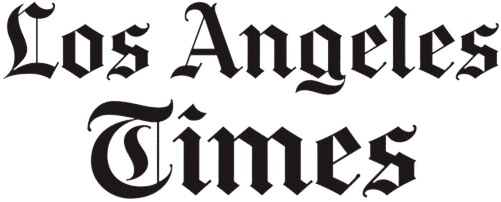In recent years, the spectre of being wrongfully accused under Title IX has become a significant concern for both educational institutions and students. The potential consequences of such accusations can be life-altering, affecting the educational and personal lives of those involved. To safeguard the principles of fairness and justice, educational institutions must take proactive measures to prevent wrongful accusations and ensure that the Title IX process remains fair, transparent, and unbiased.
This article delves into the critical steps that educational institutions can undertake to prevent wrongful accusations under Title IX. By establishing clear policies, implementing comprehensive training programs, and fostering a supportive and respectful environment, institutions can navigate the delicate balance of addressing discrimination and harassment while safeguarding the rights of those accused. In doing so, they can uphold the core principles of Title IX, ensuring that it continues to be a powerful force for equality and justice in educational settings.

Clear and Consistent Policies
Within the framework of Title IX, the establishment of unambiguous and uniform policies stands as a fundamental pillar in the quest to cultivate an environment marked by fairness and justice for every party implicated, including the student facing accusations. These policies not only serve as the bedrock principles upon which the Title IX process is constructed but also guarantee its execution with transparency and impartiality.
Defining Sexual Harassment and Consent
An essential motive behind crafting explicit policies is to furnish precise definitions of critical concepts such as sexual harassment, consent, and related terms. These definitions play a pivotal role as they form the bedrock upon which the understanding of inappropriate conduct and the parameters governing students’ actions are built. By eliminating any potential for confusion or ambiguity, educational institutions can proactively reduce the likelihood of misunderstandings and the emergence of unwarranted accusations.
Easily Accessible Code of Conduct
Educational institutions should not limit themselves to defining terms alone; they must also prioritize making their policies readily accessible and easily understandable to all members of the community. When the code of conduct is easily accessible, it serves as a valuable tool for ensuring that both students and staff are well-informed about their rights and responsibilities within the framework of Title IX. Furthermore, it contributes to the cultivation of a culture rooted in accountability, where individuals can readily consult the policy as necessary, fostering a sense of confidence and trust in the Title IX process.

Comprehensive Training Programs
Training staff, faculty, and students on Title IX policies is a critical step that educational institutions must undertake to create an environment that is both just and equitable, particularly for those who may find themselves in the role of a Title IX defense lawyer or wrongfully accused. These training programs are a linchpin in ensuring that all members of the educational community are well-informed and empowered.
Significance of Training: Understanding the significance of training cannot be overstated. By educating staff, faculty, and students about Title IX policies, institutions empower individuals with the knowledge necessary to navigate the complexities of the Title IX process. This not only promotes compliance but also fosters a sense of responsibility among all stakeholders.
Implementing Workshops and Seminars: Educational institutions can further reinforce their commitment to Title IX through the implementation of regular workshops and seminars. These interactive sessions provide a platform for in-depth discussions, scenario-based learning, and the opportunity to address questions or concerns. Such engagement goes a long way in demystifying Title IX, making it more accessible to all.
Benefits of Training: The benefits of comprehensive training programs are manifold. Firstly, they raise awareness about Title IX policies, ensuring that staff, faculty, and students are aware of their rights and responsibilities. Secondly, they play a pivotal role in preventing wrongful accusations by promoting a culture of respect and clear communication. Lastly, these programs provide individuals, including those who may serve as Title IX defense lawyers, with the tools they need to navigate Title IX proceedings fairly and effectively.
Effective Reporting Mechanisms
Strong and reliable reporting systems serve as a fundamental pillar in ensuring that the Title IX process is just and equitable, benefiting not only individuals accused of sexual misconduct but also those seeking defense, including Title IX defense lawyers. These mechanisms are pivotal for maintaining the core values of accountability, transparency, and justice within educational institutions.
Importance of Robust Reporting Mechanisms: The significance of having robust reporting mechanisms cannot be overstated. They serve as the channels through which individuals can report incidents of sexual misconduct, ensuring that their voices are heard and their concerns addressed promptly. These mechanisms not only protect the rights of the accuser but also provide a clear path for those accused to defend themselves.
Role of Anonymous Reporting Options: To safeguard the accuser’s privacy and encourage reporting, institutions must offer anonymous reporting options. Anonymous reporting empowers individuals to come forward without fear of retaliation, thus promoting a culture of accountability. This anonymity also helps prevent potential biases and ensures that investigations are conducted impartially.
Ensuring Timely and Thorough Investigations: Timeliness and thoroughness are paramount when it comes to investigations. Educational institutions must establish protocols that guarantee investigations are initiated promptly, preserving evidence and ensuring a fair process for both the accuser and the accused. Timely investigations not only help resolve cases swiftly but also reduce the emotional burden on all parties involved.
Fair and Impartial Investigations
The importance of impartiality in the investigation process cannot be overstated, particularly in cases involving accusations, including those made by an accused student facing potentially false accusations. Impartiality serves as the bedrock of a just Title IX procedure, ensuring that the rights and dignity of all parties are upheld.
Importance of Impartiality: Impartiality is essential to guarantee that investigations are conducted without bias or prejudice. It ensures that both the accuser and the accused are treated fairly and equitably, fostering trust in the process and its outcomes. In cases where false accusations may arise, impartiality becomes even more critical to prevent wrongful convictions.
Trained Investigators: To achieve impartiality, it is imperative to have trained investigators who specialize in handling Title IX cases. These professionals possess the expertise required to navigate the intricacies of such sensitive matters. Their training equips them with the ability to conduct interviews, collect evidence, and assess the credibility of all parties involved in a fair and objective manner.
Involving Both Parties and Presenting Evidence: Another pivotal aspect of fair and impartial investigations is the inclusion of both the accuser and the accused in the process. Allowing both sides to present their evidence, share their perspectives, and question witnesses helps ensure a balanced and thorough examination of the facts. This approach not only safeguards the rights of the accused but also helps in uncovering the truth, minimizing the risk of false accusations.

Regular Reviews and Updates
The importance of periodically reviewing and updating Title IX policies cannot be overstated. Such a practice is instrumental in ensuring that educational institutions remain responsive, adaptable, and committed to fostering safe and equitable environments for all.
Title IX policies should not remain static; they must evolve in response to changes in legislation and emerging issues. As laws and regulations shift over time, institutions must ensure their policies align with the most current legal standards. Moreover, emerging issues related to gender discrimination and sexual harassment may necessitate updates to address new challenges that may arise.
Demonstrating a commitment to continuous improvement is paramount. It reflects an institution’s dedication to staying ahead of evolving norms, best practices, and societal expectations. Regular reviews and updates signify that an institution is actively engaged in refining its policies to better serve its community and uphold the principles of Title IX.
Collaboration with External Organizations
Collaborating with external organizations, including local advocacy groups and legal experts, can be a strategic move for educational institutions seeking to enhance their Title IX processes, especially in cases involving Title IX defense lawyers and individuals who may be wrongfully accused.
There are several potential benefits to such collaboration. First and foremost, external organizations often bring valuable expertise and a fresh perspective to the table. Legal experts, including Title IX defense lawyers, can provide insight into the complexities of Title IX cases, ensuring that institutions follow best practices and due process. Advocacy groups can offer guidance on fostering a supportive and inclusive environment, reducing the risk of wrongful accusations.
These partnerships can significantly bolster an institution’s resources and expertise. For instance, legal experts can assist in conducting thorough and impartial investigations, ensuring that the rights of both the accuser and the accused are upheld. Advocacy groups can contribute to educational initiatives, raising awareness about consent and respectful behavior to mitigate potential misunderstandings that may lead to wrongful accusations.
Engaging in partnerships with external organizations presents a strategic avenue for educational institutions aiming to strengthen their Title IX procedures and reduce the potential for unjust accusations. Leveraging the knowledge and resources offered by legal experts and advocacy groups, institutions can safeguard the rights of everyone involved and promote an educational community that is more welcoming and supportive.
Conclusion
In summary, educational institutions bear a significant responsibility in preventing wrongful accusations under Title IX by adopting a holistic approach. This involves the establishment of clear, unwavering policies, the provision of comprehensive training programs, the implementation of effective reporting systems, the execution of equitable investigations, and collaboration with external entities, including Title IX defense lawyers when necessary.
The overarching objective is to cultivate a learning environment where every student can flourish without the specter of discrimination or harassment. Upholding the values of fairness, transparency, and accountability consistently is the linchpin in balancing the quest for justice and the protection of the rights of those who may find themselves wrongfully accused.
Educational institutions must remain resolute in their commitment to Title IX compliance, ever-adapting to shifting norms and emerging challenges. In doing so, they underscore their unwavering dedication to eradicating discrimination and harassment, thus ensuring that every student enjoys an educational journey free from apprehension and prejudice.











